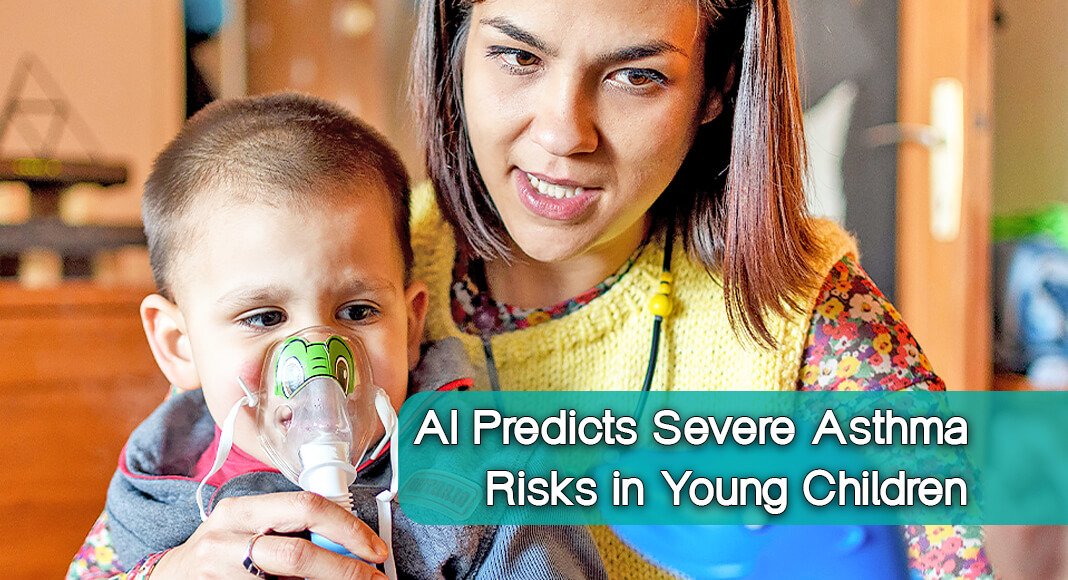
Mega Doctor News
By Mayo Clinic
Newswise — ROCHESTER, Minn. — Mayo Clinic researchers have developed artificial intelligence (AI) tools that help identify which children with asthma face the highest risk of serious asthma exacerbation and acute respiratory infections. The study, published in the Journal of Allergy and Clinical Immunology, found the tools can detect those risks as early as age 3.
The work is part of Mayo Clinic’s precure strategic priority, which aims to predict and prevent serious diseases before they advance. Through innovative technologies and population-based studies, precure is designed to bring prevention-focused care directly to patients sooner.
Toll of childhood asthma
Asthma affects nearly 6 million U.S. children and is a leading cause of missed school, emergency visits and hospital stays, according to the Centers for Disease Control and Prevention. Respiratory infections are the most common trigger of asthma attacks, but symptoms vary widely and change over time. That makes it hard for clinicians to know which children are most vulnerable, a gap these AI tools are designed to help address.
“This study takes us a step closer to precision medicine in childhood asthma, where care shifts from reactive care for advanced severe asthma to prevention and early detection of high-risk patients,” says Young Juhn, M.D., M.P.H., professor of pediatrics at Mayo Clinic and senior author of the study. Dr. Juhn directs several Mayo Clinic research programs, including the AI Program of Mayo Clinic Children’s, the Precision Population Science Lab and the HOUSES socioeconomic health program.
New AI tools for early detection
For the study, researchers examined electronic health records from more than 22,000 children born between 1997 and 2016 in southeastern Minnesota. To interpret the data at scale, they developed multiple artificial intelligence tools that use machine learning and natural language processing to extract details from doctors’ notes.
The tools captured information such as symptoms and family history, allowing the team to apply two widely used diagnostic checklists for asthma in young children: the Predetermined Asthma Criteria and the Asthma Predictive Index. These checklists are how clinicians assess signs such as recurring wheezing, coughs or allergic conditions. Children who met the criteria on both lists formed a distinct subgroup at higher risk for serious complications.
Asthma risk revealed by age 3
When researchers compared this subgroup with other children in the study, the differences were clear. By age 3, the subgroup members were experiencing pneumonia more than twice as often and influenza nearly three times as often. They also had the highest rates of asthma attacks requiring steroids, emergency visits or hospitalization. Respiratory syncytial virus (RSV) infection was also more common in this group during their first three years of life.
Children in this subgroup were more likely to have a family history of asthma, eczema, allergic rhinitis or food allergies. Further, their laboratory tests from a previous study showed signs of allergic inflammation — including higher eosinophil counts, allergen-specific IgE and periostin, which reflect type 2 inflammation — as well as impaired lung function. Together, the findings point to a high-risk asthma subtype that makes some children more vulnerable to acute respiratory infections and asthma exacerbation.
Next steps
The research team plans to test the tools in broader clinical settings as well as more diverse populations and health systems. They aim to combine the tools with biological data to refine how asthma subtypes are defined and treated early.
The team is also planning a study to explore a compound that could calm overactive immune responses linked to asthma. By using lab-grown cell models, known as organoids, they hope to find ways to detect and prevent childhood asthma earlier and on a larger scale.
This research was supported by a National Institutes of Health–funded R01 grant. For a complete list of authors, disclosures and funding, review the study.










